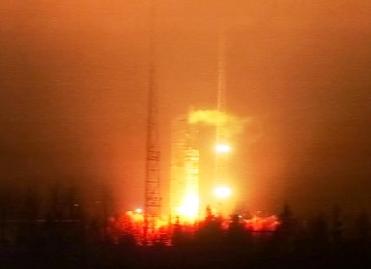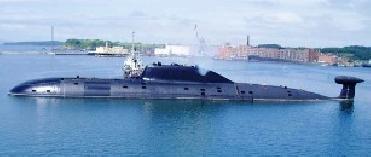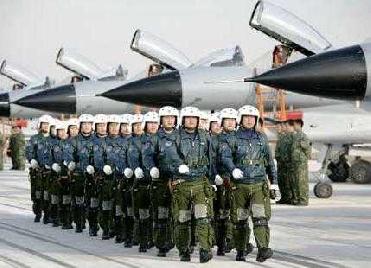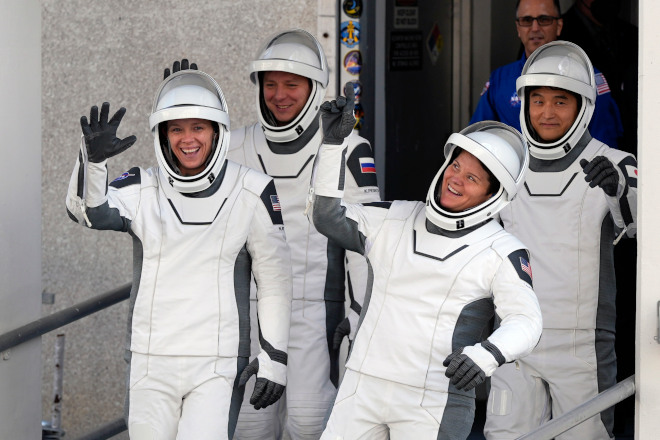
The SMOS and Proba-2 lift off, on 2 November 2009 at 02:50 CET from the Plesetsk Cosmodrome in northern Russia. Image credit: ESA
MOSCOW (BNS): Russia successfully launched a Rokot carrier rocket with two European satellites from the Plesetsk space center in northwest Russia, a media report said.
"A Rokot carrier rocket with the SMOS spacecraft and the Proba-2 mini-satellite, developed under European Space Agency's initiative, has been successfully launched," RIA Novosti quoted Aleksei Zolotukhin as saying, adding the launch took place at 4:50 a.m. Moscow time (1:50 GMT) on Monday.
He said the SMOS (Soil Moisture and Ocean Salinity) spacecraft will be put into orbit at 6:00 a.m. Moscow time (3:00 GMT), and the Proba-2 mini-satellite at 7.50 a.m. Moscow time (4:50 GMT).
According to the report, once in orbit at an altitude of 756 km (470 miles), the 665-kg SMOS spacecraft will produce global maps of high resolution and sensitivity showing variations in soil moisture and saline levels in the world's oceans. The mission is a part of the ESA's Earth Explorer Envelope Program.
SMOS will play a key role in the monitoring of climate change on a global scale. It is the first ever satellite designed both to map sea surface salinity and to monitor soil moisture on a global scale.
The 130-kg Proba-2 (Project for On-Board Autonomy) research satellite have a launch mass of 135 kg. Proba-2 is a much smaller satellite, but like its predecessor Proba-1, it will test new technologies for autonomous space missions for ESA's Technology Directorate.
The Rokot launch vehicle is a modified version of the Russian RS-18 (SS-19 Stiletto) intercontinental ballistic missile. It uses the two original lower stages of the ICBM, in conjunction with a Breeze-KM upper-stage for commercial payloads.
This is the third Rokot launch of 2009. In March, a Rokot launch vehicle successfully put into orbit the European GOCE satellite, which will measure and map the Earth's gravitational field. In July, a Rokot with three Russian Cosmos-series military satellites was launched by Russia's Space Forces from the Plesetsk space center, it said.
SMOS is a 658-kg satellite developed by ESA in cooperation with France�s CNES and Spain�s Centro para el Desarrollo Tecnol�gico Industrial (CDTI).
 Previous Article
Previous Article Next Article
Next Article













The Indian Air Force, in its flight trials evaluation report submitted before the Defence Ministry l..
view articleAn insight into the Medium Multi-Role Combat Aircraft competition...
view articleSky enthusiasts can now spot the International Space Station (ISS) commanded by Indian-American astr..
view article